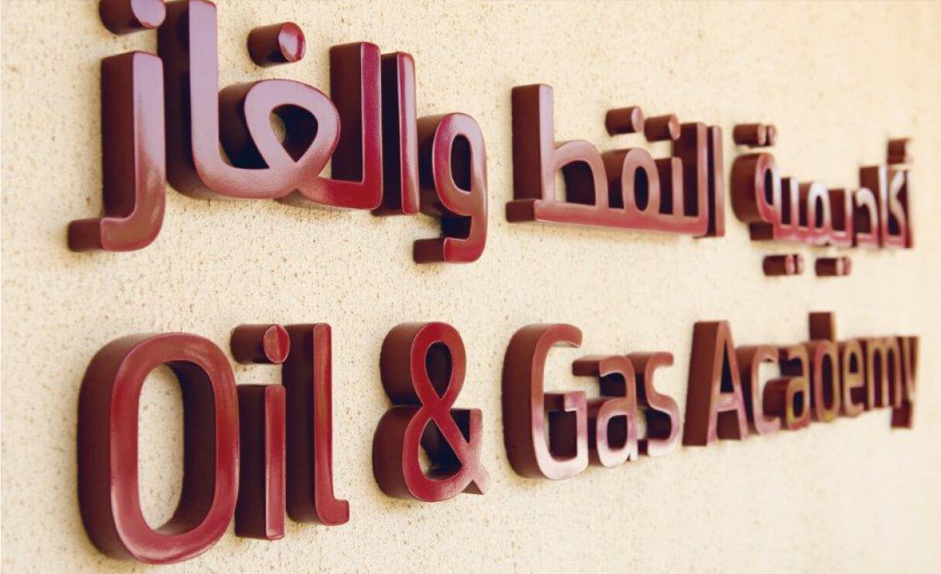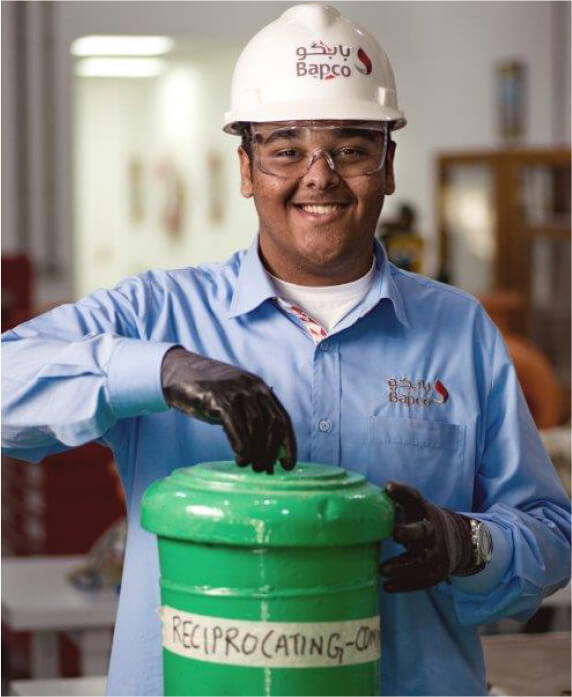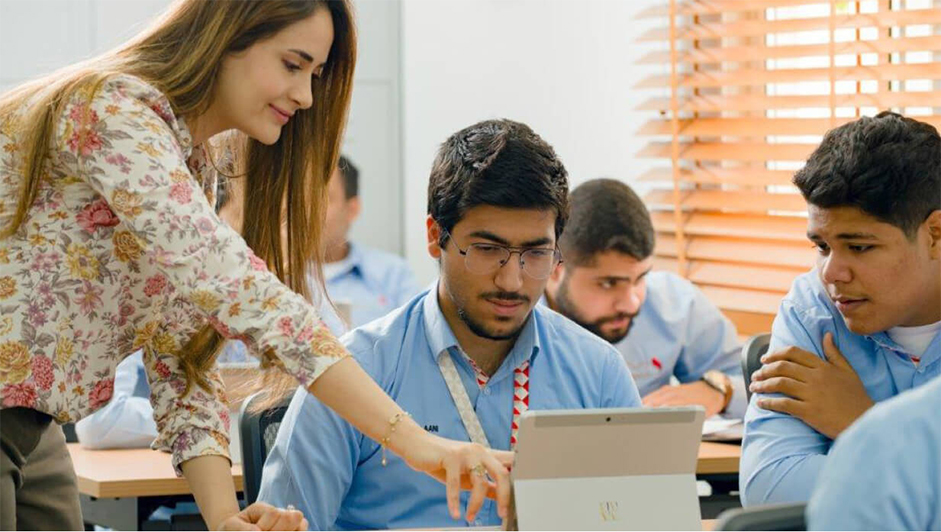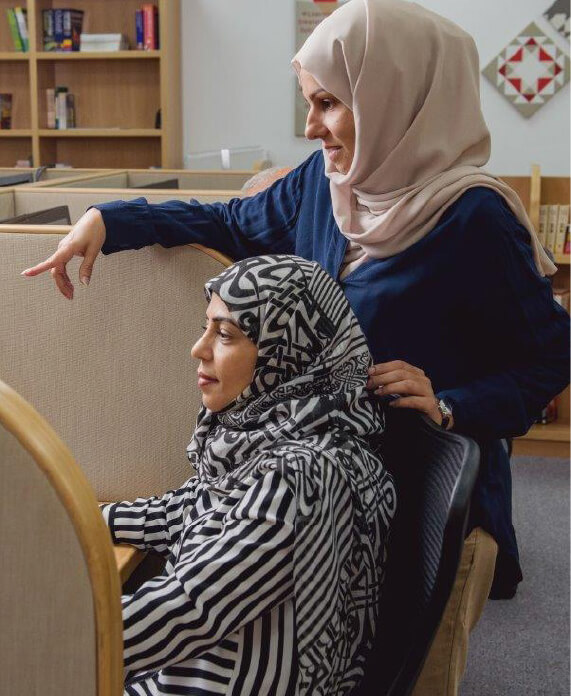Training and Development
Bapco Refining’s Training and Development Department, based in Awali, is a learning and development center that prepares employees and trainees to meet the future needs of Bahrain’s oil and gas industry. The Academy is accredited by the UK’s Institute of Leadership and Management (ILM) and City & Guilds.
The department is the hub of Bapco Refining’s training and development activities and delivers a wide range of technical and professional training to meet the future needs of the Company. 
Diploma Program (Apprenticeship)
Bapco Refining’s apprenticeship programme which was first set up in the 1950s and 1960s has been revived. Trainees are enrolled in Bapco Refining’s diploma programs for a duration of two to three years to help prepare them for their future roles as operators in the Refining Division or as technicians in the Reliability and Maintenance Division. Apprenticeships are offered in Oil & Gas Operations, Mechanical Engineering, Electrical Engineering and Instrumentation and Control. During 2019, the first intake of 15 female trainees joined the programme.


Newly Recruited Bahraini Operators and Technicians
The department is training over a hundred newly recruited young Bahrainis for Refining and Reliability and Maintenance Divisions and ensure their readiness for the Bapco Modernization Programme (BMP). Their development programme which lasts 12 to 18 months comprises familiarisation, unit schools and structured on-the-job training to ensuring the highest levels of skills acquisition and competence.

BMP Training and New Technologies
The department harnesses new technologies such as web-based learning, virtual reality, micro learning and 3D visualisation videos which engage the learner and enhances knowledge transfer.

As further evidence of Bapco Refining’s commitment to utilising the latest technologies in the world, in December 2019 the LC- Fining Center of Excellence was opened. This training facility provides a realistic distraction-free training environment to master the state-of-the-art technology to be used in the Residue Hydrocracking Unit (RHCU) which will be the most complex Refinery unit post BMP. The Center of Excellence at the Training and Development Department is the first in the world to offer dedicated LC-Fining technology simulator training and, in collaboration with Chevron Lummus Global (CLG), will focus on training operators from the GCC and worldwide in LC-Fining Technology.
Development Centre
In line with international best practice, the Development Centre at the department provides a service that works efficiently to produce meaningful data through a process that is transparent, reliable and fair. Assessments are used for the purposes of selection of recruitment candidates, Diploma trainees, Strategic/Development trainees and Scholarship candidates. The center currently includes Console Operator Basic Requirement assessment (COBRA), English assessments, Aptitude assessments, Personality assessments, and Information Technology assessments.


Functional Training and Knowledge Management
Bapco Refining is committed to develop all employees including, those in the support functions. To run the business efficiently, it is essential for our teams in Human Resources, Finance, Procurement, Health, Safety, and Environment, Audit, Risk, and Compliance and other support functions are competent to perform their daily activities. Bapco Refining’s Training and Development Department supports our professionals to earn Professional Certificates relevant to their area of responsibility.
Bapco Refining’s Training and Development Department has laid the foundation of Knowledge Management across the organisation. Knowledge Sharing sessions of Technical and Non-Technical topics are delivered via various methods including, face-to-face and virtual. We are keen to ensure our employees are updated with the most recent information and topics within the oil and gas industry. Bapco's Training and Development Department realises the effectiveness of the 70,20,10 module; and therefore, it believes that Knowledge is gained, shared, and captured across the organisation through the following tools:
- Workshops, Conferences, and Courses
- Knowledge Exchange Programs
- Knowledge Transfer
- Community of Best Practice
- e-Learning and E-Library
- On the Job Training